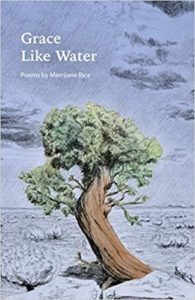Even during this COVID era, October 2020 ushered in many of the usual school activities, sporting events, and holiday celebrations. For me, it marked another important milestone as I published my second book of poetry—a book that had its beginnings in two announcements by The Church of Jesus Christ of Latter-day Saints.
First, in June 2018, the First Presidency introduced “a new resource to support personal and family scripture study.” The name of this at-home study resource was Come, Follow Me—For Individuals and Families. It consisted of a manual with assigned weekly readings, questions to spur thoughtful study, and suggestions for teaching the scriptures within families.
Then in October 2018, the First Presidency announced that, to help achieve a better balance between home and Church gospel instruction, organized Church services would be reduced from three hours to two. Members were encouraged to use that extra time at home for family and personal study.
After these announcements, I felt called to repentance. In the past, I used to read the scriptures with my parents, for seminary classes, and during full-time missionary service, but for a long time, I hadn’t been consistent with my personal scripture study. Marriage and motherhood left me feeling tired and disorganized. I often felt too distracted by work, family, and Church responsibilities. Now I felt prompted to renew my efforts to study the scriptures regularly.
I decided to put my own spin on the project by writing a new poem every week inspired by that week’s assigned readings. To give myself some accountability for my goal, I committed to share my poems on Facebook as I wrote them, first on my personal page and later on my author page “A Poet in Zion.” I was pleased to see that friends and family responded with their own questions and comments about the scripture passages I addressed. We shared our thoughts, notes from commentaries, and personal inspirations we gained from what we studied.
About the same time that I was recommitting myself to scripture study, my friend James Goldberg invited me to take part in a group that focused on fostering the production of Latter-day Saint literature. I first became acquainted with James in 2012 when he and his wife Nicole began hosting the Mormon Lit Blitz, an annual literature contest that called for submissions of “short works for Mormons to be published and read online.” At the time, I’d been searching for a way to share my poetry with an audience who could appreciate it because of our mutual cultural and religious background. I had participated in the contest every year since its inception and was excited to take part in any project or group that James thought would benefit Latter-day Saint literature.
During our meetings, James shared his vision for a way to encourage authors to write new works by adapting the patron model often used for visual arts. He wanted to start a non-profit organization—now known as the Mormon Lit Lab—that would promote a panel of authors and projects to potential patrons who could then choose what kind of book they wanted to sponsor. In return for the sponsor’s financial support, the Mormon Lit Lab would shepherd the author through the steps of writing, production, publication, advertising, and sales of a new work of Mormon literature. The sponsor would get not only the satisfaction of seeing a new book come into the world but receive some kind of physical artifact of the work’s production.
This idea immediately resonated with me. As I continued to study, pray, and write, I began to compose poems with an eye toward producing a book of poetry centered on the life and teachings of Jesus Christ as presented in the New Testament. I started to keep a scrapbook of my thoughts, questions, and insights. I pasted in artworks that reminded me of the stories I was reading. I included copies of my early poem drafts with redlined edits and notes. I tried to put myself into the minds and hearts of the people in the New Testament, as well as trying to understand how their teachings and experiences in a time and place so far distant from my own could help me live a better life now and draw closer to Jesus Christ.
I began to look forward to my scripture study each week with real enjoyment. It was no longer simply a duty or a chore for me, but a feast.
 The last piece of this project fell into place when my second son Nathan returned from a mission to Tijuana, Mexico. He agreed to collaborate with me by creating the illustrations for my book, including the cover. I appreciate his diligence in working to understand my poems so he could produce insightful visual commentary, all while attending school, working, and serving in the temple.
The last piece of this project fell into place when my second son Nathan returned from a mission to Tijuana, Mexico. He agreed to collaborate with me by creating the illustrations for my book, including the cover. I appreciate his diligence in working to understand my poems so he could produce insightful visual commentary, all while attending school, working, and serving in the temple.
I continue to write poetry as I study the scriptures, even as the Church’s focus has shifted to the Book of Mormon in January 2020 and now the Doctrine and Covenants for 2021. I hope to have many books to share well into the future.
At Jacob’s Well
Living water, he said:
not like a stream,
doggedly rushing down
to a dead sea
not like transient pools after rain,
stagnant and passive
as the sun sucks them dry
not like this well,
cool and deep,
cryptic in darkness
but a spring filling up,
bubbling over,
spilling through everyone.
Can you imagine a man
who would make fountains
of us all?
Yet as he spoke,
I felt the surge
within.
 Merrijane Rice grew up in Bountiful, Utah. She received a B.A. in English from Brigham Young University and later served a mission for The Church of Jesus Christ of Latter-day Saints in Washington, D.C. She currently works as Lead Editor for DMBA. Her poetry has been published in BYU Studies, Ensign, New Era,
Merrijane Rice grew up in Bountiful, Utah. She received a B.A. in English from Brigham Young University and later served a mission for The Church of Jesus Christ of Latter-day Saints in Washington, D.C. She currently works as Lead Editor for DMBA. Her poetry has been published in BYU Studies, Ensign, New Era,  Segullah, Mormon Lit Blitz, and various publications of the Utah State Poetry Society. She self-published her first poetry collection Messages on the Water in 2017. Her second book Grace Like Water was published by Mormon Lit Lab in 2020. She and her husband Jason have four sons and live in Kaysville, Utah.
Segullah, Mormon Lit Blitz, and various publications of the Utah State Poetry Society. She self-published her first poetry collection Messages on the Water in 2017. Her second book Grace Like Water was published by Mormon Lit Lab in 2020. She and her husband Jason have four sons and live in Kaysville, Utah.

